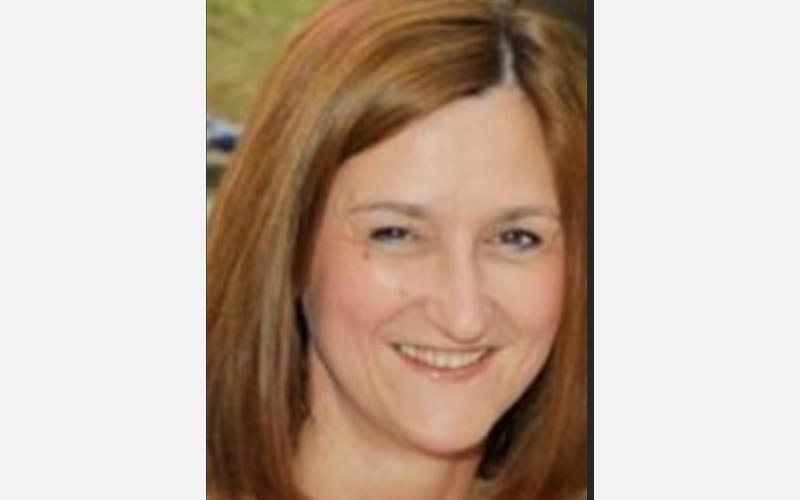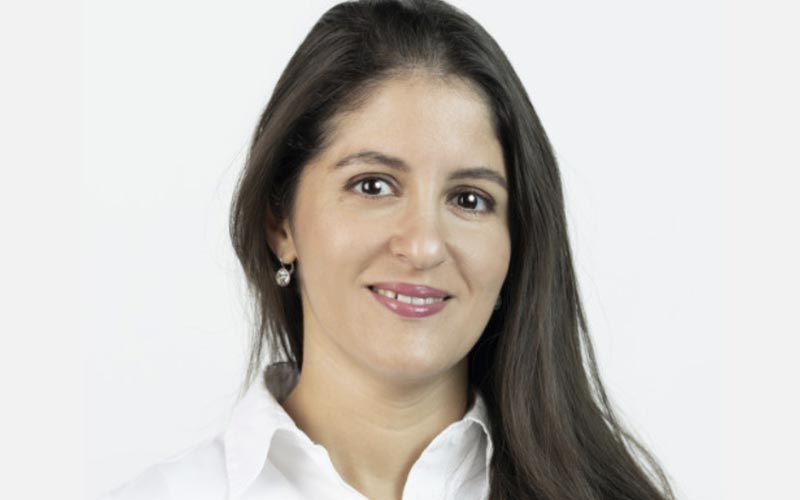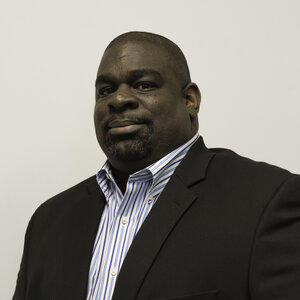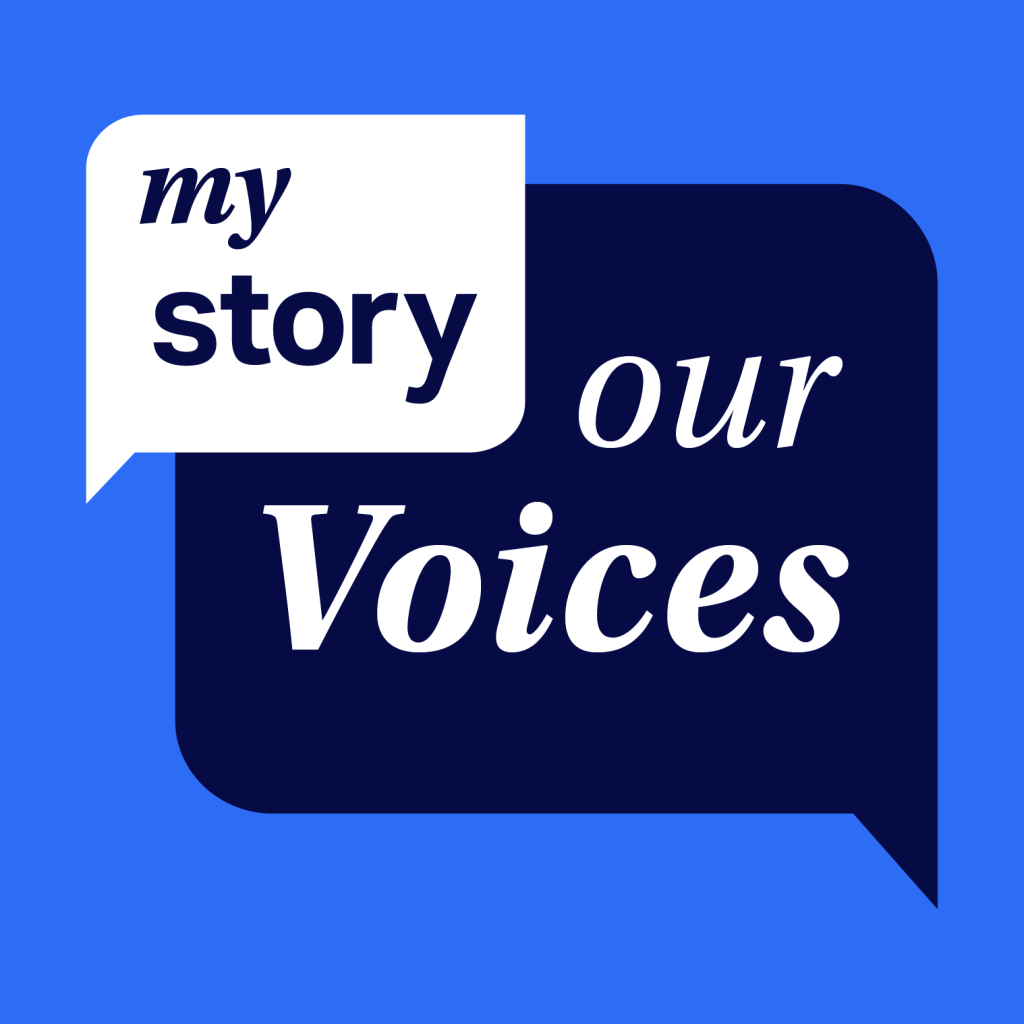Lidija & Meriem discuss motherhood and the rewards of taking the leap
Join hosts James and Myriam on this episode of My Story Our Voices, an NIQ DEI podcast, as they sit down with guests Lidija Tisljar & Meriem El Youssofi to discuss being a working mother, relocating their families to another country, and the rewards of taking the leap.


Lidija Tisljar
European Client Business Partner
Lidija has been with Nielsen for 18 years and is currently a Client Business Partner in the Netherlands. She moved to the Netherlands 8 1/2 years ago from Croatia where she started her Nielsen career in her free time. She enjoys Pilates, meditation and has a reborn passion for cooking.

Meriem El Youssofi
Client Success Manager
Meriem is a Client Success Manager based in Canada. Meriem moved 10 years ago working in North Africa and Asia to join Nielsen. Meriem has a passion for market research and has experience in retail intelligence, qualitative and quantitative, consumer and shopper research, category management, analytics, account management and of course, storytelling. In her free time, Meriem enjoys morning walks, salsa, dancing and reading, especially fiction, psychology, philosophy, and behavioral economics.

Terrance Bacchus – Cincinnati, Ohio, USA
Vice President, New Customer Success ELP
Terrance has been with NielsenIQ for 2 years after 20+ years at General Mills. His interests include giving back to the community, inspiring and coaching young people to seek financial empowerment by being resilient and making smart choices.
Lidija recommends Amy Cuddy’s book ‘Presence’ as one of her favorites – “It’s good for everyone, especially women who want to learn how to improve their executive presence and demonstrate more self-confidence in professional and personal lives.”
Meriem finds this to be such a light, accessible and balanced read – ‘The Little Book of LYKKE’ (the Danish search for the world’s happiest people).
Transcript
The views and opinions expressed in this podcast belong to the individuals who shared them and do not necessarily represent NielsenIQ.
Laura Batien: Hi everyone and welcome to my blank story. My name is Laura Bettine and if this is your first time tuning in then. Let me tell you what this podcast is. All about and. In a nutshell, it’s about stories. Your story. We think stories are. Important because when we tell them we open the door and allow others to see the experiences that shaped us that challenged us and helped us grow. By doing this, we can create a culture where open dialogue is encouraged and we can have a space to discuss important topics in a transparent and courageous manner, so minimize that e-mail. Tab, mute your chat and take a little break to listen to a Nielsen IQ story.
Myriam Vidalon: Hi NielsenIQ, welcome to My _ Story podcast sponsored by Diversity, Equity, and Inclusion. I’m Miriam Vidalon and I am joined by my sidekick and Co-host James Anderson. Hey, James, how are you?
James Anderson: Hey Miriam, I’m doing well. My name is James Anderson, and I am a senior analyst here in the Toronto Office for Manufacturer Analytics Group and I’m very excited to be part of this podcast, a place where we allow our associates to share their experiences that shape them, and by sharing them, they can help us all grow. Now, Miriam, just for some context for our listeners, we’re recording this just after the start of the new year, 2023 and I know that about half the world is sort of going through bleak midwinter at the moment. So, I was just wondering as we’re transitioning from one year into the into the New Year, I think we all need some light and some joy. Is there anything in particular that’s bringing you joy at this time of the year?
Myriam Vidalon: Yep, yeah, James a Lot of things are bringing me joy, I will tell you the biggest one of them is I got to spend some time with my family over the holidays, really spend time with my kids doing nothing, playing, talking, chatting and that has gotten me with a lot of joy in my heart and excitement for 2023, seeing them grow, seeing them evolve, it’s just unbelievable. How about you? What is bringing you joy these days?
James Anderson: Oh, that’s lovely. I was doing a little bit of stock taking, you know, in our work that we do, my analytics work, we do a lot of comparisons. We compared this year to previous year to see you know how things have changed and I got had a promotion last year pretty much at the same time and just the other day I was thinking Oh God, I still feel like I haven’t learned anything. I don’t know anything more than I did, but taking stock of that learning process and you know, facing some of those challenges and through the transition and then realizing you know, I’m not in the same place I was before, I I have learned things. I have moved forward and that alone has been bringing me some joy in the last little while. I know that our guests today are going to talk a little bit about the transitions that they have been through and the joy that that has brought them. Do you want to introduce the first guest?
Myriam Vidalon: That sounds like a plan, and I am so excited to hear about your accomplishments over the past year. It’s unbelievable. It’s worth taking time to acknowledge how much we’ve grown and evolved, right?
James Anderson: Agreed.
Miriam Vidalon: So, let me introduce our first guest, Lidija Tisljar. Lidija has been at Nielsen IQ for 18 years, and she’s currently a client business partner for the Netherlands. In her free time, she enjoys meditation, and says that for her it’s been a reborn passion to start cooking. So welcome to our podcast series Lidija, how are you?
Lidija Tisljar: Oh, thank you so much for having me here. It’s, it’s really a privilege to be part of this tribe. I’m really well, thank you. Summer is coming. So that always boosts my mood.
Miriam Vidalon: That’s phenomenal, Lidija, thank you so much for being here today. So, we’re eager to hear your story. Tell us about it.
Lidija Tisljar: Well, you know, when you first reached out to me and, and said that the podcast is about Joy, I started thinking, oh my God, you know what, what is joy to me and what are the joyful moments in my life? And I struggled for a moment because as for many people, joy spans from all those little moments. So, I realized it will really be difficult for me to define joy as one occasion. So, I started thinking about common denominators, and I actually identified two. The first one is as an extrovert. I really enjoy interacting with other people, so meeting colleagues, working together to achieve a goal, helping someone excel, receiving help, nothing makes me happier than interacting with people. And the second common denominator is more an internal one. And that is being true to myself. What I have learned in my life is that I can only truly be joyful and happy if I’m being myself, if I’m being authentic, and if I make decisions in line with my ideals. So, my story begins almost nine years ago, when I was still in Adriatics and in my home country, Croatia, and I got this amazing opportunity to move to the Netherlands for the for the city client business partner role, and it was really the dream coming true, exactly the role that I wanted with that exciting. Twist of relocating and having the opportunity to live in a different country and learn about different cultures. So, I moved to the Netherlands by myself first to get everything prepared for my family, and that was the first thing that was very new to me, was suddenly being alone without my children, and that was very challenging. They were fourteen and seven at the time, and I remember it was 16 weeks that I needed to survive without them and then I was literally counting one by one and waiting for the time for all of us to be together again. So, I really missed my family, but then the additional challenge was my new job. It was a fully on site role, meaning that I was at the client all the time and I suddenly compared to 8 years of experiencing at the Adriatic, I was suddenly taken out of my familiar NielsenIQ environment. The role was, as you know, it was a new role. It needed to be defined and structured. So, I was really struggling. I felt very alone, and I started doubting whether it was, you know, the right decision to do. And especially you know, should I be bringing my family here? How will it affect my children? Will they like it? Will they be able to adjust so millions and millions of questions are going around my head and all those worries combined started peaking just before my family were about to join, and I was. I was feeling very, very stressed. At that very moment, I received a phone call from my NielsenIQ office in Croatia and they told me that they had a very senior role opening and they were, they just wanted to check if I would consider coming back and taking on that role. So obviously, you know in the in, the spirit that I was in at the moment, really stressed and worried, it seemed like a really easy way out. But then on the other hand, I was wondering if it’s just a test to my resilience and commitment to the decisions that I previously made. So, I said, OK, I’ll think about it, and I will let you know, and I will never forget that moment. I literally looked at myself in the mirror and in less than 5 seconds I knew exactly what I needed to do and that was that. I needed to stay, and I needed to make things work. Otherwise, I will never be able to look at myself in the mirror again. If I went back to Croatia, I would have felt as if I failed and knowing myself really well, that was just not an option. Now, almost nine years after that event, I still think about that moment, and it makes me feel so happy and filled with joy and pride because I did stay. I did make things work and the process that I needed to go through to make that happen just has just made me a so much better person, like, personally and professionally, I feel it was very transformative. So, for me, you know from that moment onward, it’s very, very clear. I need to be true to myself. I need to listen to myself. I need to make decisions that are in line with who I am, and that’s the only way to feeling joyful and happy.
James Anderson: Thank you so much for your story, Lidija. It’s really, really inspiring. We’re excited now to introduce our 2nd guest, Meriem El Youssofi. Meriem is a client success manager based in Canada and she joined NielsenIQ 10 years ago working in North Africa and Asia. Miriam has a passion for market research and has experience in retail intelligence, qualitative and quantitative, consumer and shopper research, category management, analytics, account management and, of course, storytelling. In her free time, Meriem enjoys morning walks, salsa dancing, and reading. Meriem let’s hear your story.
Meriem El Youssofi: Hi everyone so I hope this story inspires our other associates in NielsenIQ, especially the younger ones. It’s important to start the journey you know with the end in mind and with the idea that one day you will be telling your story. So, something that I realized very early in my life is that I wanted to be an independent woman, travel the world and mix with different cultures. So, I come from Morocco. The first stop takes me to France, where I finish my studies and I meet Nielsen data for the first time as an assistant at CP. And there it’s super clear to me I found my purpose I want to start to tell stories combining different data sets. I really enjoyed that exercise. From there I moved back to Morocco where I joined Nielsen, but very, very quickly I realized that, you know, I want an international career. I want exposure. I’m hungry for more and I’m extremely grateful for my leaders at that point, who understood that need and helped me really steer my career towards the next stop, which is to Buy. So, in Dubai, our UAE office, I spent the next eight years, a lot of things change about me that in place. So first of all,Dubai is in a really vibrant place, super diverse, more than 200 nationalities, a place where really, you know, both characters, achievers get a place to grow if they want. And it’s really a place where, you know, I was able to try new things, learn new things. For example, it’s there where I learned and I enjoy yoga now. Now I love spicy food, for example, and I acquired a new skill. If you don’t speak English and you walk next to me, it’s very likely that I would be able to know where you’re from and depending on your accent. That actually helped me, gave me an edge in many business encounters. It helped me engage with people in a very personal way, and in some cases helped me deescalate a lot of professional situations where people would not necessarily expect me to speak their language. Another important step that I had in Dubai is, you know, maternity. I had a difficult pregnancy. My newborn was extremely underweight. And everybody wanted me to stay longer in the hospital and my maternal instinct said no. I wanted to take my little one home and we engaged on the two months long breastfeeding camp, which hopefully ended up successfully. She was out of trouble. But it was a very difficult and also important period in my life. Last year. It’s an interesting year for everybody, but it was even more interesting for me because it’s the year where we decided as a family to move to Canada. But it had an interesting impact on us. Really, really unexpected. We thought that it would be much harder. But on a personal level, I was able to connect better with my daughter, while completely delivering and sometimes over delivering on my business commitments and at the same time it enabled me to continue working. Before I moved, as soon as I moved to Canada, I kept on working for my UAE team and I actually, there was no interruption. I moved to the Canadian team in early December. So again, I want to thank my leaders both in the UAE team and the Canadian team who really trusted me without probably, for example in the in the Canadian team, I haven’t met anybody yet, so. that’s really great. And so, in conclusion, moving many, many years, you know forward from my younger times which right, so I lived half of my life probably away from my hometown, traveled 15 countries, worked in 4 continents and I’m a happy mom of a three year old vibrant girl. My last message, please be brave enough to embrace new learning curves and start as many as you can while you can. This happened for me in, you know, with movement and diverse exposure. And I was telling Lidija why while we were preparing for the session, even supermarket rides, when you leave your country, becomes an adventure. Thank you.
Miriam Vidalon: Wow, that’s amazing. Thank you so much, Meriem, for sharing your story with us. And one highlight that I see from both of your stories is that ability to find joy in the uncertainty, when changes are in place. So, Lidija, my first question is for you. You mentioned that you were true to yourself. And that’s what really helped you find joy despite being at a moment where everything seemed opposite, and you had a chance to go back home to what was familiar to you. At what point would you say that you truly found joy? Because I cannot imagine that you were feeling joyful when all these things are happening and you’re feeling like you don’t belong at that moment and things are different than what you’re used to. At what point would you say that, you said, wow, that was a great decision. I found joy in this decision that I made.
Lidija Tisljar: It was really in that moment. And it’s equally joy and peace which I think are very much interlinked. When I looked at myself in the mirror and I knew exactly what I needed to do right, that’s when the big burden comes off your chest because of the uncertainty in itself, but even more, the feeling that you’re stuck and you’re not able to make the decision typically is a stressful situation. Recently I read a quote from Simon Sinek. He said, like, you know, “when in doubt, be yourself” and that resonates with me very much. I think that the challenge is getting to knowing yourself and that’s the part I also needed to go through, right. That’s the cycle of continuous learning about yourself and coming to a point where you’re then able to hear that eager voice, we all have it. Sometimes there’s so much noise, and especially in those very difficult moments in life, that noise prevents us sometimes from hearing a very simple message that is coming from within. So, for me it was literally at that moment when I understood what I needed to do, that that was in.
James Anderson: I hear your story, Lidija, and I think about how it must have been tough because while you have this maternal instinct at the same time you are missing your kids for 16 weeks and then to be told you can go back home, but you decide otherwise. And the same thing with. You marry him. Your child was very underweight, but you decided that you had to make a decision because. Something inside you told you that joy would come if you brought your child home. So, I want to ask both of you if this was something that you had to work against. This motherly instinct to either run back to your family or to listen to your doctors, or was it something that helped you find your joy?
Meriem El Youssofi: I think you definitely cannot go against that instinct. It’s impossible even if you want to, and you actually when you do that, you find the strength to to carry on and you know, do what it takes to provide for your little ones. The moment I made that call in front of the doctors there was no more plan D. We had to deliver so that she could hopefully, you know, gain weight. And the breastfeeding was for me. So essentially, I wanted to do it and I’m happy we managed. I’m saying we because my mom was a great supporter there as well.
Lidija Tisljar: Yeah, I I agree with Meriem and I being a mom, being a parent drives a lot of our decisions. And yes, you know I was really thankful and appreciated the opportunity that I was offered, the role where I could progress within NielsenIQ and I and I can grow my career. That was the opportunity I didn’t want miss, but for me, I just also wanted to be a good role model for my children, and I thought, you know, if we do this, if we move out as a family, if I can show them that you can, you can be brave, you can make different decisions in life and you can make it work. I thought that was the best message that I could give to my children and that’s another thing that turned out to be very, very true. And my kids, you know, now they’re teenagers and my daughter is almost out of the house. And you know, it was painful for them. But what they’re saying is that they are so grateful for the experience because now they feel they can go anywhere, and they can do whatever they want to do. They don’t have, they don’t feel boundaries, they don’t have the fear of unknown. And for me, as a parent, I mean nothing compares to that.
James Anderson: You know, hearing some of the messages that both of you are sharing, whether it’s to be authentic or just be yourself, be brave. It’s so helpful to hear that, especially when we think about making our own decisions. I would love to know who was the one person that was your support when you were making those decisions. Who helped you find and get that joy?
Meriem El Youssofi: I think my answer is going to sound so classic, so expected and I think I mentioned earlier it’s going to be my mom. She has been inspiring for me in many ways. First of all, she used to teach a subject that I love, philosophy. That’s where my love for, you know, ideas and debate, etcetera, comes from. She’s also a profoundly positive person. You know, you throw anything at her. And you know, she will get through it. She raised 4 kids, and now with one kid. I cannot imagine having four. Whenever I see that things are getting difficult, I just need to picture her to move on.
Lidija Tisljar: For me, I think it will be my husband who has been very, very supportive throughout my career and just as an example, when I had the first conversation about moving to the Netherlands and having this opportunity, and I said, you know, what do you think? And his immediate response was, yeah, you should do it. Just apply and let’s go. And for me, you know when, when in doubt, you know of, of how things will work out. I know that there will always be this back up from his side. You know if things go wrong, he will be there to sympathize with me. And you know, we can go through that together as a team and that’s that’s pretty much how I look at us and the family. As a whole it it’s really the teamwork Meriem was talking about her mother and I was thinking about mine. Mine was the complete opposite of myself. She has devoted her life to being a wife and a mother, so most of her life she didn’t work, and my mother was devastated when we told her that we are moving out of Croatia and you know, she would now suddenly lose the time with her grandchildren, etcetera. But again, and of course it was very difficult for me to see her sad, but there was that inner drive and inner feeling that this is something we have to do as a family, you know, regardless of what other people think. And I told her I do understand. But you know, this is something we have to do and. And in the end, she realized that it wasn’t that bad at all because, you know, we could speak over cameras, and she would see us all the time.
Myriam Vidalon: And Lydia, thank you so much for sharing that last story about the situation with your mom. I feel that many of us who are working mothers because it’s true, I think it’s very helpful to have one person that perhaps can give you that courage. Right. And who believes in you and gives you that support so that you can move forward. So that said, what would you say was the moment if there was any moment at all through this, through your stories, you did not feel joyful?
Lidija Tisljar: Well, I think in both of our cases it was really about a journey. So, my journey is already almost nine years long. And of course, you know, there were very difficult moments and less difficult moments and great moments. So, it would be unfair to say that there wasn’t a time where I felt like “Why did they do this?” and, you know, “Did I really need this in my life?” I mean it’s small things. Like I came to the Netherlands, and I went to Nielsen office to pick up the keys of the company car, which was quite old and didn’t have, you know, a GPS or anything and the HR rep only said to me, “Are you seriously taking this car now and driving to Rotterdam?” Being for the first time in this country and I had printed out, you know, Google Maps instructions. And I said, “but what other choice do I have?” And those are small things. But you don’t necessarily even think about when you’re in your home country. You know, they you just take them as they are given those small moments and small victories. So, it just makes you feel so empowered and makes you realize that, you know, there is almost nothing that we can, we cannot deal with and that there’s almost nothing that we cannot, you know, if someone was telling me all the stories that I will and about all the obstacles that I will need to overcome in that journey then. Maybe, I don’t know, I would feel discouraged, but I would almost consider all those difficult moments equally joyful, you know, because what comes after them is, like, you know, exponential joy.
Meriem El Youssofi: And to be honest, Myriam, this question that you asked is the most intimate, you know, and personal that one can ask you because it’s much easier to talk about joyful moments versus those where, you know, they are usually lonely moments. Right. There is a sense of shame. And OK, how would people see me after they know about the story, you know? So, you know, when you leave your country, and you start this journey of, OK, I have this objective to travel the world and do different things and immerse myself in different experiences. I think there are many instances where you will doubt big time why you’ve gone that far, right? And each of those moments is truly a moment for you to reflect about how miserable you are. And then decide that you will make something. Out of this miserable situation. And you will move on. So, it could be situations where, for example, you have to relearn a lot of things, and the natives of that place consider that you should be proficient in it, right? So, it could be speaking and driving, doing administrative stuff. So, you look like a child or like a teenager, and you have to build that quality each time that can be of course very painful, but in my case, I’ve always seen it like an opportunity to, you know, surprise the others and show them, hey, I managed, you know, you didn’t think I would, I would do it, but guess what? I mnaged. What’s next?
James Anderson: Yeah, I think you’re right, Meriem. You know it’s going to be very inspiring for people to hear that joy comes from a lot of struggles because when people find themselves in the darkest part of their own journeys, hearing that you were able to do it because of the dark part is really helpful and me and you don’t know this. In yoga, we say this phrase, no mud. No, Lotus, now Lotus is a beautiful flower and you have to have that struggle in order to find that beautiful joy. It sort of needs to be there. There’s the easy joy of the sun on your face. But then there’s that, wow, moment of, “I did it. I got through it, I made it, and maybe no one thought I could do it, but I did it”. I’m not feeling that Meriem talks about the internal one is so boundless and can be so strong. It’s important to acknowledge it now. Talking about connections, one of the things I’m curious about with both of you is because you both had to move to a different place. What’s your connection like to your home country? Is it the same? Do you still miss it? A lot? Is is it even stronger than before? But what’s the connection you have there now?
Meriem El Youssofi: This question again brings a smile because I still love. you know, my hometown, so I come from a city that’s really in the intersection between Africa and Europe. So, it’s called Tangier. It’s 14 kilometers away from Spain and I I still love that place. But usually when I go for vacation. I love the first days, but then towards the end I feel like, OK, I really want to fly. So yeah, it’s very versatile. But of course, I couldn’t live without going back and being grounded in that city. But at the same time, I want to have the freedom and the possibility to continue moving around and discovering myself through different experiences.
Lidija Tisljar: Yeah, for me. It’s what I think I learned or realized being away from my home country is that sense of belonging that suddenly you either become more aware of it or it just becomes stronger. I don’t know. But yeah, I. I do feel a strong sense of belonging in my home country. I’m always happy to go back and I’m pretty sure I will go back one day, but similarly to my children, it living outside of my home country has. Made me fearless in the sense that, you know, I I feel like I I can go, you know, anywhere further than this. I can live in other countries. Suddenly nothing. Nothing seems so big. As you know, the the move to the Netherlands seemed nine years ago. So I think you know, I would definitely recommend to everyone. To have that experience because it opens your mind and you can read as many books as you wish and you can, you can watch as many documentaries about different cultures. But being part of the life in the in the country that is not your home country is something that I don’t know. It’s profoundly different and you know. I moved within the same continent. And so I was still in Europe and I didn’t think the differences will be, you know, major, but did I? Was I surprised and did I learn a lot about that? So for for me? Yeah, I think I think. It’s important to know where. Your roots are and and be proud of where you come from and I’m I’m very proud of my country and I have successfully. And a lot of colleagues from here to holidays in Croatia. But yeah, it it it really opens up your mind to other things and geographies as well. So I would definitely recommend that. Experience to everyone.
Meriem El Youssofi: And if I may add here, in fact your home is something that is in your mind. I consider that I have a home in Dubai as well. Right. So, because when you travel you need to reconstruct again this circle of people that share the same values because you start attracting people that you would typically attract in other places. It’s really interesting.
Myriam Vidalon: A really interesting point, Meriem. With that traveling and the amount of changes that you’ve gone through, you mentioned how. you know you, also see it as an opportunity to prove yourself right every time. But I want to ask you a question around change fatigue, which is a term that we’ve been hearing so often. How do you avoid change fatigue?
Meriem El Youssofi: I think I don’t understand this word, because change, it’s really for me a trigger. I need to get. You know if I’m in a situation for a couple of years, I try to get the best out of it and then I really seek that change. So of course, it comes with the struggle, as I said, the beginner syndrome, right, you have this load of experience, but people when you jump into and you curve people will think you are novice, you’re starting from scratch. This happened to me, Myriam, when I first went back from maternity leave. It was just three months, but it had a profound effect. I think in the first day I struggled with Excel.
Myriam Vidalon: Yeah, well, I I can relate to that. When I came back from my second child, we had transitioned to Google, and I was like what is happening?
Meriem El Youssofi: And so, you’re supposed to be like you’re expected to know and to manage. So, I feel like there is a tiger inside you throw something at me and you think I might not, you know, managed. To do it I tried to prove you wrong. So also the message here, for a lot of associates here, really is useless to. Of course with this change it is also OK to feel fatigue, so that’s why it’s important as well to pamper yourself whenever possible. Have “me” time whenever you can to really appreciate. How long you’ve come and find the energy to progress. It’s essential to acknowledge the fatigue and deal with it.
James Anderson: I’m so inspired by your stories of joy and authenticity. They are truly inspiring. So, I want to thank both of you for being on the podcast today and I want to thank all of our guests thus far for being so open with their experiences and sharing their stories. And that’s it for this episode of My ___ Story, be sure to visit us again for another episode of unique and diverse stories from our NielsenIQ Associates.
Laura Batien: Hey all, it’s Laura again. We hope you enjoyed this episode of My ___ Story. Tune in next time to hear more stories from the NielsenIQ community.
Lidija Tisljar: Those small moments, the small victories where it just makes you feel so empowered and makes you realize that you know, there’s always nothing that that we cannot deal with and that there’s always something that we cannot overcome.
Meriem El Youssofi: We are the ones who tell the narratives that a lot of things can happen to us. A lot of events you know can occur. But you know, the way we internalize them, the way we decide to view them and act upon them is what makes a difference from a person to another.

